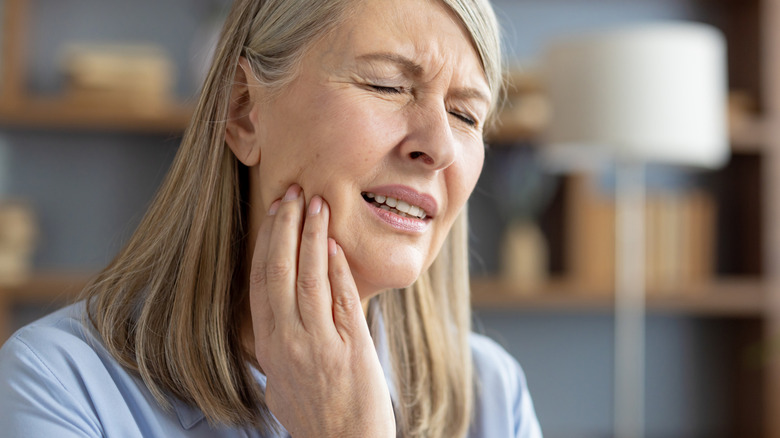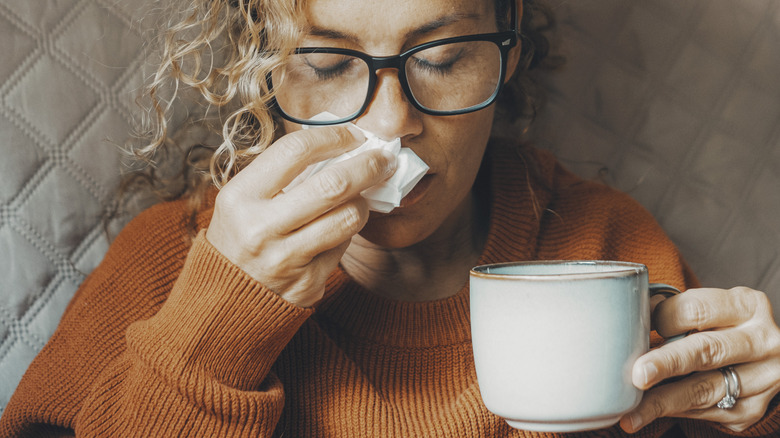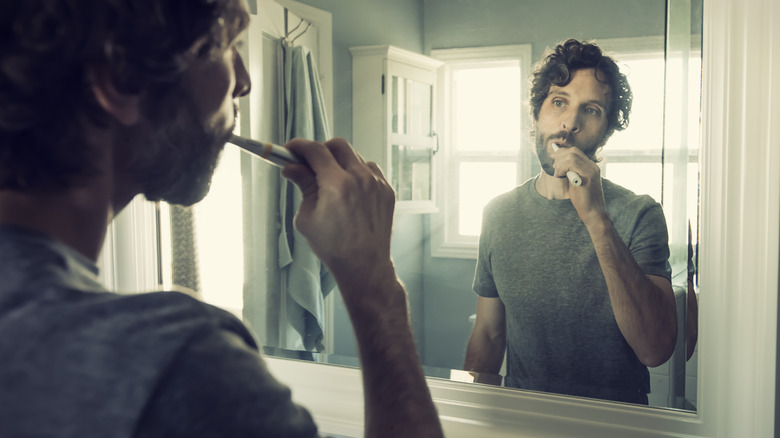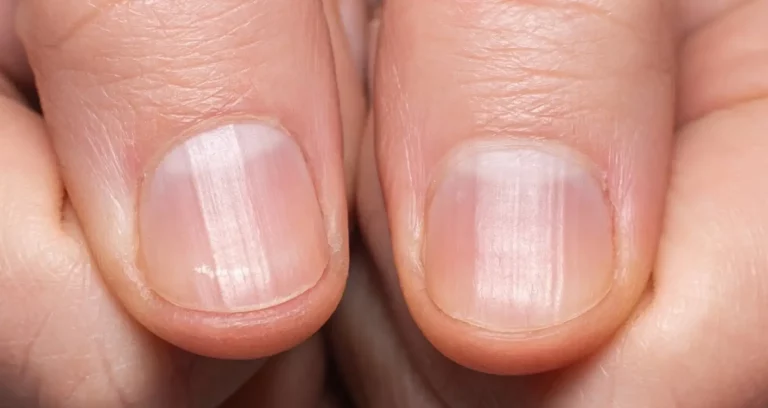
Colds and viruses can cause various parts of your body to feel dreadful. From a pounding head to an upset stomach, discomfort may overwhelm you. While it’s not unexpected since you’re unwell, you might be taken aback when your teeth begin to ache. There are a few reasons your teeth may feel uncomfortable that aren’t related to dental issues like cavities or loose crowns. One primary reason is sinus pressure, which can result from congestion, inflammation, infection, or a combination of these factors.
The sinuses are akin to “holes” located between your eyes and your upper back teeth. Typically, they’re unnoticeable. However, if a cold leads to fluid accumulation in them, they can become irritated and inflamed (e.g., sinusitis), or you might develop a full-blown sinus infection (learn more about the signs you might have a sinus infection). At this point, the sinuses start to expand, pushing outward in all directions, including against the roots of your molars. It may seem like your teeth are generating pain, but they aren’t the issue. Your teeth are merely reacting to the pressure pushing against them.
Consider this: What if all of your teeth hurt? In such a case, you might be experiencing one of the symptoms of the common cold or flu: dry mouth.
Advantages of Keeping a Moist Mouth

Many individuals struggle to drink sufficient liquids when they’re ill, increasing the likelihood of a dry mouth. The drier your mouth becomes, the more sensitive your teeth and gums can get due to the lack of saliva protection. The simplest solution if you suspect dehydration is to drink water and other fluids. Also, ensure you drink extra if you’re on cold medications that may dry your mouth, such as painkillers, decongestants, and antihistamines.
As your cold or sinus infection starts to diminish (which might take several weeks), your teeth should return to normal. Meanwhile, maintain your oral care routine. Despite feeling unmotivated to brush your teeth when sick, it’s important to do so. Brushing helps prevent unwanted bacteria from accumulating in your mouth. Plus, if you’re ill enough to require hospitalization, regular brushing can lower your risk of developing hospital-acquired pneumonia.
Pampering Your Mouth Pays Off

According to a 2024 review in JAMA Internal Medicine, patients in intensive care units who received regular oral care were less likely to develop pneumonia and more likely to recover faster and have shorter stays than those who didn’t. Findings from a 2020 study in Open Forum Infectious Disease indicate a 56% reduction in pneumonia rates in non-ventilated patients who brushed their teeth.
Of course, motivating yourself to brush when your teeth ache can be challenging. However, it’s a healthier habit than waiting for your cold to subside before addressing your teeth. As dentist Dr. Anne Clemons mentioned in an interview for the Cleveland Clinic, “The mouth is connected to your whole body. We can’t just separate it and put it aside… it’s all connected, so the cleaner and healthier your mouth is, the better and healthier you are overall.”
If brushing feels uncomfortable, use a toothbrush with soft bristles for a gentle clean that minimizes irritation in sensitive mouth areas. Remember to discard your toothbrush after recovering fully, as used toothbrushes can harbor germs for weeks.




